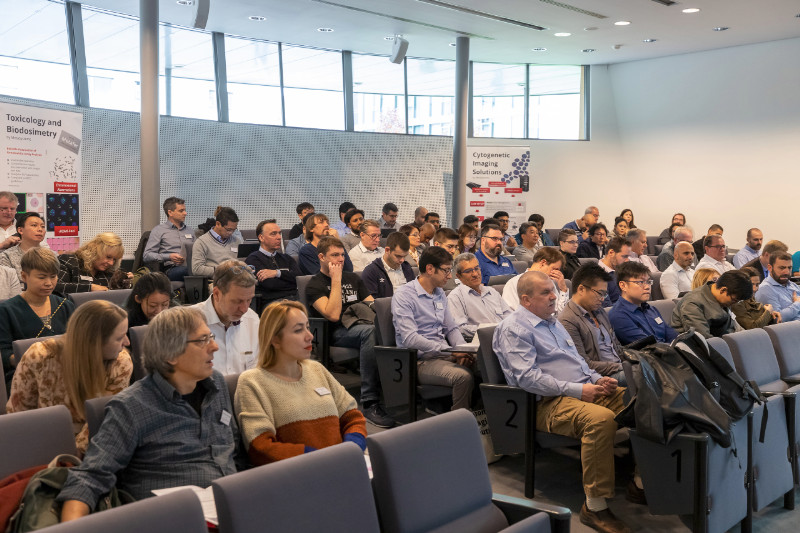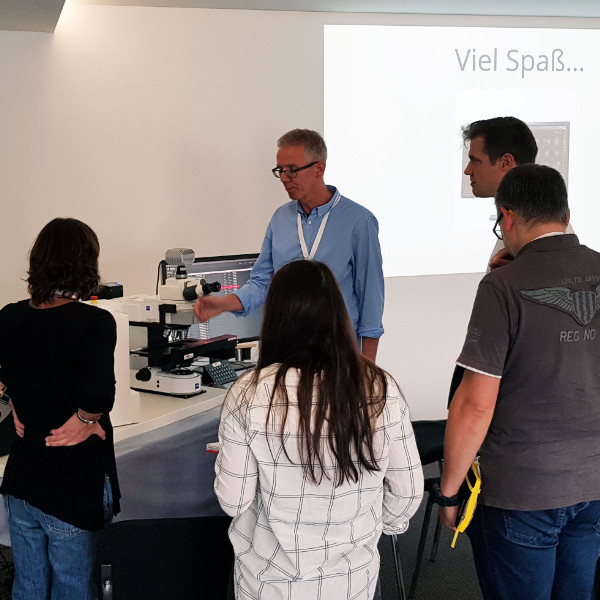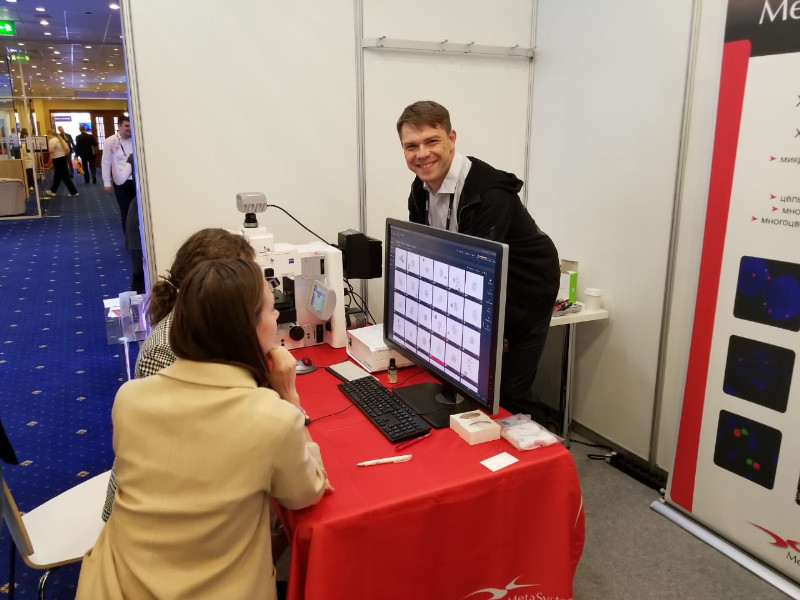About 100 guests from 36 countries met on the XVIII. MetaSystems Distributor Meeting (DM) in November to exchange experiences and to get to know new trends and developments at MetaSystems.

Our internet site may contain information that is not approved in all countries or regions. To ensure accuracy of content, please select your country/region of residence. Choose International if your country is not listed.
This information will be saved using cookies. To find out more about cookies, read our Privacy Policy.
Please select your country of residence. Choose International if your country is not listed.
Our internet site may contain information that is not approved in all countries or regions. To ensure accuracy of content, it is required that you select the site which is appropriate for your country of residence.
MetaSystems Probes has already certified a large part of its portfolio, according to IVDR. For organizational reasons, we currently provide only the IVDD product.
Discover all IVDR-certified products
XL ABL1 BA consists of a green-labeled probe hybridizing proximal to the ABL1 gene region at 9q34.1 and an orange-labeled probe hybridizing distal to the ABL1 gene region at 9q34.1.
Probe maps are created in accordance with the intended purpose of the product. Solid colored bars do not necessarily indicate that the probe fully covers the indicated genomic region. Therefore, caution is advised when interpreting results generated through off-label use. Probe map details based on UCSC Genome Browser GRCh37/hg19. Map components not to scale. Further information is available on request.
Acute lymphoblastic leukemia (ALL) is the most common malignancy in children with a prevalence of approximately 1:1500. Children with Down syndrome have a 10- to 20-fold increased risk of developing acute leukemia (B-cell precursor-ALL, acute myeloid leukemia, and particularly acute megakaryoblastic leukemia).
In 2017, the WHO recognized BCR-ABL1-like ALL, a subtype of B-lymphoblastic leukemia/lymphoma, as a new entity. BCR-ABL1-like ALL, also known as Philadelphia chromosome (Ph)-like ALL, is found in 10-20% of childhood and in 20-30% of all adult B-cell dependent ALL cases. BCR-ABL1-like ALL is characterized by a gene expression profile sharing significant overlap with that of Ph-positive (Ph+) ALL. In contrast to Ph+ ALL, defined by the presence of the BCR-ABL1 fusion resulting from t(9;22)(q34;q11), BCR-ABL1-like cases include a variety of genomic alterations enhancing kinase and cytokine receptor signaling.
Prominent genes involved in the pathogenesis of BCR-ABL1-like ALL are CRLF2, EPOR, JAK2, ABL1, ABL2, CSF1R and PDGFRB. The already known heterogenous 5' fusion partners of ABL1 are CENPC, ETV6, FOXP1, LSM14A, NUP153, NUP214, RANBP2, RCSD1, SFPQ, SNX1, SNX2, SPTAN1 and ZMIZ1. The kinase domain of ABL1 is present in all identified chimeric fusion proteins.

Normal Cell:
Two green-orange colocalization/fusion signals (2GO).

Aberrant Cell (typical results):
One green-orange colocalization/fusion signal (1GO), one separate green (1G) and orange (1O) signal each resulting from a chromosome break in the relevant locus.
Certificate of Analysis (CoA)
or go to CoA DatabaseNeon, the outstanding MetaSystems case and image management system, offers many tools and helpful gadgets to streamline routine workflows, for example in cytogenetics labs. The second MetaSystems User Day, addressed to MetaSystems clients from Germany, Austria, and Switzerland, provided in different workshops knowledge helping to unleash the full power of the system.

The Congress 'Genetics of XXI Century' in Moscow, Russia (May 2019) has been one of the most important events for the professional international community of geneticists. Our partner company in Russia OOO MetaSystems considered it a good occasion to present the new camera CoolCube 4 connected to a state-of-the-art Neon system to the public.
